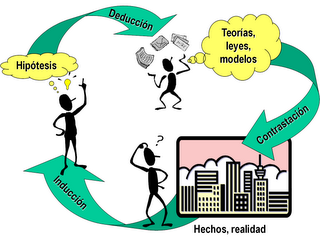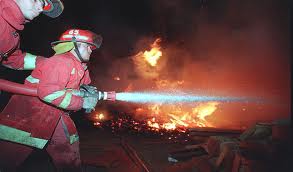 A fragment is understood to be all that part that makes up a superior element and that was voluntarily or involuntarily separated from the rest for a certain reason, for example because it was broken or split.
A fragment is understood to be all that part that makes up a superior element and that was voluntarily or involuntarily separated from the rest for a certain reason, for example because it was broken or split.
The fragment is the part that constitutes a whole. It will be meaningless per se and that is why it must be contextualized in order to understand it. Outside of the whole to which it belongs, it will be impossible to understand it. In other words, it can only be considered in relation to the rest of the parts that accompany it in that whole that it integrates, it is impossible to consider it separately from them. The fragment always refers to that macro element that it integrates.
Fragile items can be broken into fragments
From a physical plane, we must say that the fragment is generated when an element is broken. Fragile items tend to break, breaking into various parts much more easily than a more solid item does. For example, glass is a noble and resistant material, but it turns out to be very weak and fragile when hitting, and it is normal for it to break or break into several fragments when hit. The same occurs with materials such as ceramics, to cite another common example.
Applies to artistic productions
Normally, the term fragment is used to indicate parts or portions of a written work, to portray a part of a pictorial or musical work, etc. At the same time, a fragment may be a found archaeological document belonging to a more complex or larger item of which only that particular portion is preserved.
The concept, as we have already pointed out, is usually applied to artistic or cultural productions, such is the case of a film, a play, a piece of music or a text.
Although it may be that these fragments that correspond to a work have a quota of meaning per se, always, to understand them in effect and that they make sense, they must be considered in terms of the whole to which they belong. In other words, we can see a part of the film and understand, understand what happens in a scene with two characters that interact, but we definitely will not understand many things in relation to what they say because we have not seen the entire work or film.
With the speeches or public or private comments of some people something similar happens
Many times fragments of them are cut or disseminated with the mission of causing sympathy or antipathy in relation to that person. Normally this action is called decontextualization and we must say that in some cases where it is done maliciously it can cause many problems.
As noted, the notion of fragment always implies a separation from something greater. This separation can occur voluntarily or involuntarily. In the first case we observe such a condition when a person takes a fragment of a text to quote it, a fragment of a speech, a fragment of a painting or of a previous creation to refer to certain ideas or elements found in it. In the second case, a fragment is something that was found in a certain state and that does not allow us to know the whole set but is a part of it. A work or element that has been fragmented is one that no longer appears completely but is now represented in different parts divided among themselves. The defragmentation of works of art is very common and also has to do with re-finding new meanings to what arises from such a division.
The verb fragmentar then gives the idea of dividing, of selecting, of establishing parts on a totality that can be more or less large depending on each case. In many cases, the notion of fragmenting or establishing fragments can be applied to real-life situations that have to do with relationships between people. Thus, a person who fragments a group of people is not understood as someone who divides it into equal parts, but rather as someone who generates breaks and ruptures between the different individuals.









